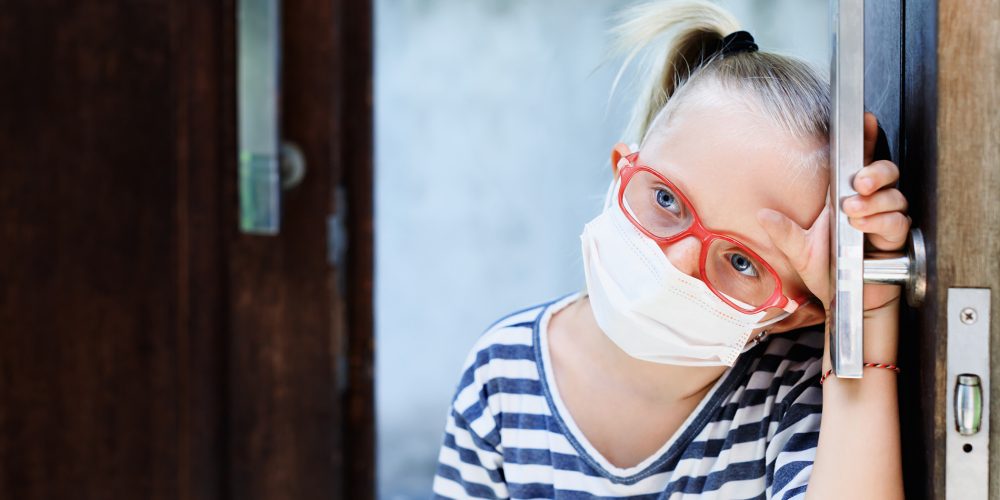|
|
While mainstream media continues to push headlines of spiking virus “cases,” they totally ignore the reason for rising cases is from the fear they are selling, which has accelerated a sharp spike of worried people getting tested. And, they downplay the fact that fatality rates for young people are minimal… and the extensive shutdown of schools is harming millions of kids.
Indeed, according to the American Academy of Pediatrics (AAP), it is important to get kids back in school, as the mental and physical damage inflicted on “stay at home and learn” children greatly outweigh virus risks. The AAP says:
“The importance of in-person learning is well-documented, and there is already evidence of the negative impacts on children because of school closures in the spring of 2020. Lengthy time away from school and associated interruption of supportive services often results in social isolation, making it difficult for schools to identify and address important learning deficits as well as child and adolescent physical or sexual abuse, substance use, depression, and suicidal ideation.
This, in turn, places children and adolescents at considerable risk of morbidity and, in some cases, mortality. Beyond the educational impact and social impact of school closures, there has been substantial impact on food security and physical activity for children and families. The disproportionate impact this has had on Black, Latino, and Native American/Alaskan Native children and adolescents must also be recognized.”
Depression and Suicide
These findings were also confirmed in a study published in the Journal of the American Medical Association (JAMA). Their data showed a substantial rise in depression and suicide among Chinese students by May, less than two months after the school shutdown. Compared to the previous November, suicide rates more than doubled.
On 9 November, The Guardian noted data collected in the U.K. by the Office for Standards in Education, Children’s Services and Skills (Ofsted), which detailed how the lockdown is causing severe problems in younger school children throughout the nation.
Ofsted’s Chief Inspector, Amanda Spielman, points to rising rates of eating disorders and mental stress as the U.K. maintains its lockdown. It points to the worse case scenarios among kids from lower income families whose parents aren’t allowed flexible work hours and thus are not around to help out during the day. “Ofsted remains worried about children at risk of neglect, exploitation and abuse. Child protection referrals fell while schools were closed to most pupils and have not yet returned to normal level.”
In the Netherlands, three University of Oxford researchers looked at the effect of the eight-week school closure after the first wave of the coronavirus hit the country. On 9 November, they published their findings in the report titled, “The collateral damage to children’s education during lockdown.”
Despite the Netherlands having a less-strict lockdown compared to other countries in Europe, the results of even the short school lockdown proved devastating:
“Despite a light lockdown and excellent infrastructure for remote learning, our results are dire… the upshot is that the average student made little or no progress while learning from home. Worryingly, losses are particularly concentrated among students from less-educated homes – here, the learning loss is up to 55% larger than among their more advantaged peers.”
The researchers conclude:
“As large parts of the world are heading into a second wave of the pandemic, it is vital to know how school closures impact on students’ progress, and be aware of the disproportionate damage to students from disadvantaged homes. With new school closures currently being discussed as a way to combat the pandemic, our study gives crucial input for decision-makers. The results are sobering: even in the ‘best-case’ scenario of a short lockdown and good infrastructure for remote learning, students learned little or nothing from home.”
TRENDPOST: While fear and anxiety escalate in America and more schools are being shut down, in Europe, despite the fear of cases rising and new rounds of lockdown rules, many EU nations, in view of growing evidence based on science, are keeping schools open.
As NPR noted last Friday,
“Across Europe, schools and child care centers are staying open even as much of the continent reports rising coronavirus cases, and even as many businesses and gathering places are shut or restricted. Countries such as France, the United Kingdom, Germany, and Italy appear to be following the emerging evidence that schools have not been major centers of transmission of the virus, especially for young children. And experts say these nations are also demonstrating a commitment to avoiding the worst impacts of the pandemic on children.”
Again, the mental damage inflicted on young people whose parents have enlisted to fight the COVID War will dramatically alter interpersonal skills and relationships.

